Is there a problem with unregistered schools?
School inspectors have warned that there are hundreds of unregistered schools but that they have few powers to investigate or shut them down.
When you think of a place that teaches groups of children - all day, every day - the word most people would use is "school".
But the law in England is surprisingly vague on what a school actually is.
More than 350 sites - suspected of being unregistered schools - have been investigated in England by education watchdog Ofsted since a specialist taskforce was set up two years ago.
Ofsted inspectors say they don't have proper powers to inspect or close them. The people running these sites say they are not schools at all.
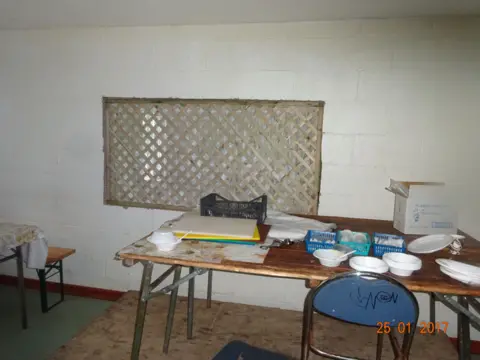 Ofsted
OfstedSome of them are on industrial estates, in church basements and even in pubs. The BBC has obtained pictures showing squalor, appalling food hygiene and dangerous wiring. Some premises have blocked fire escapes and no access to clean drinking water. Many sites do no criminal records checking of staff.
But because of the confusing legal situation, most remain open.
The tearful mother
Suri's son is about to leave his primary and go to big school.
Not every parent is happy about the choice of education they end up with, but Suri - not her real name - breaks down in tears when she thinks about where her boy is going.
Later this year he will start at a "yeshiva" in the Haredi ultra-orthodox Jewish community in Stamford Hill, north London. It is not registered and its premises and teaching go unmonitored by the authorities.
Suri's son will never do GCSEs there, as these yeshivas usually don't provide any maths, English or science despite operating full-time.
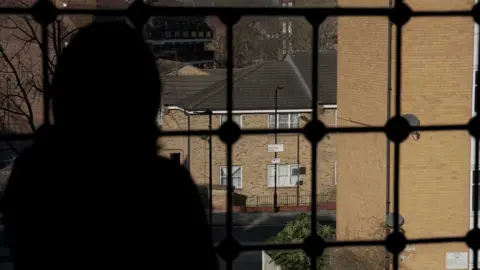
Instead they offer a wholly religious education for boys, focused on scripture, from the age of 13.
At their schools, girls are often able to study secular subjects and do exams, but after a Haredi boy's Bar Mitzvah, devotion to religious education is imperative.
Those who run yeshivas would argue that they are not schools and therefore don't have to abide by the rules that the state imposes.

If you have any information or experience with unregistered schools that you are willing to share with the BBC you can get in touch with us, in confidence, at [email protected]

And the Department for Education seems to accept that yeshivas are not technically schools.
In a statement, the DfE told the BBC that yeshivas "do not meet the definition of a school and cannot therefore be prosecuted for operating as an unregistered school".
The DfE guidelines for England say that any place that teaches five or more children for at least 18 hours a week needs to be registered as a school. In Wales, anywhere offering "full-time education" is expected to register. In Northern Ireland the law requires all independent schools to register. The same applies in Scotland.
But legal guidance known to have been cited by the DfE says a site is not technically a school if it doesn't teach general classes of education, such as maths, English or science.
Hence any place that only teaches religious education - be it Muslim, Jewish, Christian or any other faith - is arguably not a school.
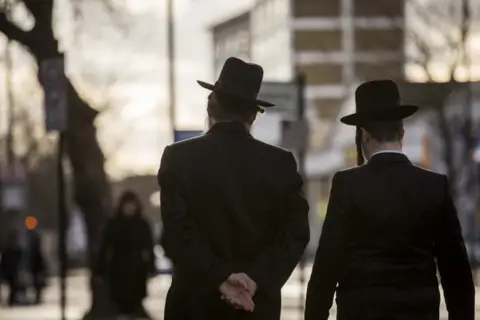 Getty Images
Getty ImagesBut critics say that it is bizarre that a building - where children of school age are taught full-time - is not deemed a school.
"Of course they're schools," says Jay Harman, of pressure group Humanists UK, which campaigns on the issue of unregistered schools. "These are places which provide children their only education from dawn till dusk. The fact that it's scriptural doesn't detract from their status as schools."
For the critics, to define the yeshivas as anything other than schools would suggest that the children are getting their main form of education elsewhere. The law demands all children have an efficient full-time education, whether at a school or at home. That's simply not happening, says Izzy Posen, 23, who was at a Stamford Hill yeshiva from the age of 13.
"Children are in a yeshiva from as early as 8am until as late as 9pm - if that isn't a school, I'm not sure what is.
"They're not taught anything else at home. There's no secular studies but this is the sole education I got - I didn't get any other. I couldn't speak or write English.
"When I came out of these yeshivas, I had to teach myself English because I was never taught English.
"I remember at 18 reading an elementary school text book. I had no idea what the maths Pi symbol meant."
Certainly Suri believes that going to yeshiva will mean that her son does not get a full education.
"There is no education at all and we're living in Britain - boys can't speak English," Suri says.
She acknowledges that many Haredi parents are happy for their children to only have religious education.
But Suri believes her sons will struggle to get jobs if they ever want to find work.
"They'll have no future. They'll be stuck on benefits and left behind. Culture is important, identity is important, but there has to be a balance."
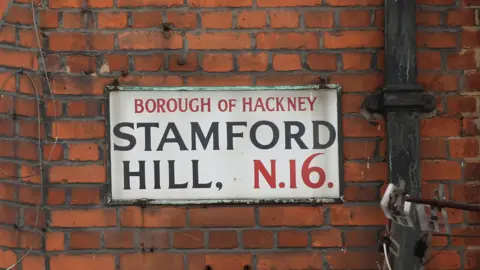 Getty Images
Getty ImagesSuri belongs to one of the more conservative groupings within the Haredi community. She says if she were to try to enrol her son in a different school - even another Haredi one in Stamford Hill - she would face shame both in her community and within her own family.
"We'd be considered bad parents. We'd be ostracised."
Suri took an unusual step and contacted Hackney Council and Ofsted to press them to close the unregistered schools or launch inspections.
Despite acknowledging that these places exist, the authorities said they couldn't help her.
But as well as the yeshivas for boys aged 13-16, the BBC has found two suspected Haredi primaries that have never been inspected by Ofsted.
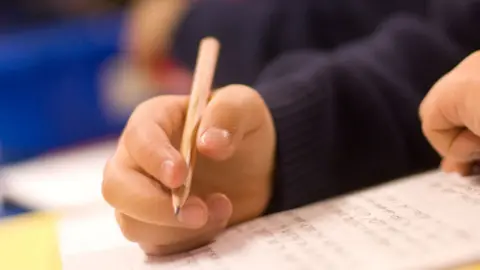 Getty Images
Getty ImagesOne was based in a building belonging to a synagogue in Westcliff-on-Sea, in Essex, but run separately by a Haredi group. The children there were much younger than those one would see at a yeshiva.
The synagogue denies that an unregistered school is being run on the premises.
It says that the education provided is within the 18-hour limit. But when the BBC observed it, it was operating for longer hours.
We filmed footage of a teacher appearing to manhandle a distressed child on one occasion, and strike a different boy on another. These incidents showed "huge safeguarding issues", according to Anne Longfield, the Children's Commissioner.
The synagogue said it had not been aware of any assaults and has requested more information. It has since suspended the school.
Another suspected unregistered primary school was located in a house in Hackney, where at least 30 young boys could be observed arriving at the beginning of the school day.
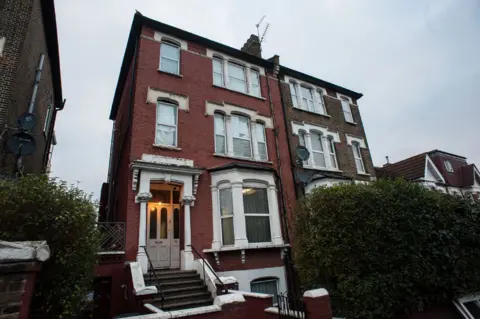
When we knocked at the door we were told it was a club and advised to speak to a man - Moses Lewis - who says he advises "schools and non-schools" in the area.
He points out that there are many more registered schools than unregistered ones. "I don't think we give the country much trouble by the way we educate our children."
He says he is confident that the law is not being broken.
"If somebody's got the courage, be it the Department for Education, be it Ofsted, let them pluck up the courage and bring a prosecution and let's fight it out in court."
In January, Hackney Council released its long-delayed investigation into the 30 or so unregistered educational sites in the borough. It called for greater inspection powers.
Eli Spitzer is the headmaster of a registered school in north London, but attended two unregistered schools himself.
He took GCSEs after graduating from a yeshiva and believes a solution can be found if the Department for Education acts. "The overwhelming majority of schools are registered.
"If parents are reassured that what the authorities want is purely and simply compliance with the law, and are willing to accommodate their desire to educate their children in this type of way, I see no reason why we shouldn't be able to find a solution to this."
While he acknowledges there are some major obstacles - such as the teaching of sex education - he says regulatory inertia is responsible for the presence of so many unregistered schools.
"Like every industry that is unregulated, people just act with impunity, start taking advantage, start cutting corners - compliance and health and safety for example."
The confrontation
On a morning in July 2017, three Ofsted inspectors visited a building in central London they suspected of housing an unregistered school.
Just a mile's walk from the Tower of London, the site in Whitechapel was housed in a four-storey block on a stretch of Commercial Road, surrounded by women's clothes wholesalers and curry restaurants.
After they arrived, inspectors allege they were called "Britain First paedophiles" - a reference to the far-right group - by a former headteacher, Mohammed Umair.
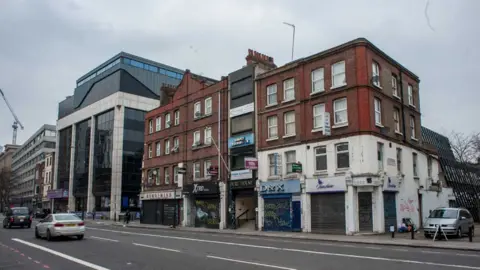
Umair is now facing prosecution for racially abusing Ofsted inspectors. He denies abusing them.
Umair was issued with a warning notice by the inspectors for allegedly running a school on the site.
The year before, Ayasofia Primary, a registered school he had run from a building nearby was shut down after inspections found failings.
But Umair maintains he wasn't operating an unregistered school and says the centre was being run by someone else on a part-time basis.
Isolated communities
Last September, Metropolitan Police Deputy Assistant Commissioner Neil Basu addressed the general issue of unregistered schools. He said in "segregated and isolated communities, unregulated and home schooling are a breeding ground for extremism and future terrorism".
The BBC has obtained a book from an unregistered school for young children in Birmingham that advocates the murder of gay people.
"Those guilty of this crime are to be killed by the sword," says a passage in Forbidden, written by Muhammad Saleh al-Munajjid.
Another chapter warns a wife against refusing sex with her husband. Elsewhere it says a woman wearing perfume is an adulterer.
 Ofsted
OfstedThe book "undermines the values which British schools seek to promote" and "could potentially isolate young impressionable minds of Muslim schoolchildren", according to Dr Iqtidar Cheema, director of the Institute for Leadership and Community Development, run by the charity Muslim Aid.
"Such moral and conceptual isolation is the first step to radicalisation."
Dr Farid Panjwani of the Institute of Education says some Muslims perceive they are marginalised and that unregistered schools may be a product of that.
A number of factors, including the government's anti-radicalisation Prevent strategy and episodes of Islamophobia, lead to some Muslims feeling "disproportionate scrutiny", he says.
"We should not generalise. The vast majority of schools with Muslim religious character are registered and doing well, some of them are performing at the top of the country."
A school in a church
In September 2015 a mixed school called Enterprise Diamond was set up in the basement of St Swithun's Church in Lewisham, south-east London. Nine pupils were enrolled.
Some had previously been home schooled. The parents of others did not want them going to a Pupil Referral Unit - a centre that educates children who are expelled or otherwise unable to attend school.
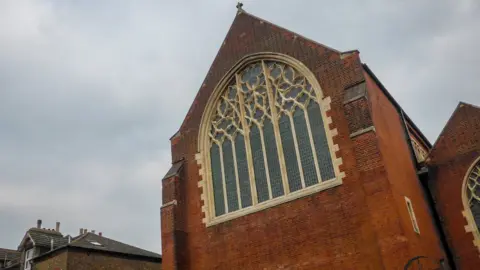 Press Eye
Press EyeThe school was set up by Kay Johnston. She had attempted to register it but started lessons before the process was finished.
Soon after, Johnston faced serious allegations from her time at another school in 2014. She was accused of assaulting a five year-old pupil with learning difficulties. Johnston was also claimed to have pushed the child off a chair.
After reviewing CCTV footage, a panel from the National College for Teaching and Leadership banned Johnston from teaching in January 2016.
She denies striking the child and says she was bitten and kicked several times.
Johnston appealed and continued to run Enterprise Diamond before it was inspected by Ofsted in March 2016 and served with a warning notice for running an unregistered school. She closed the school shortly after.
There is no suggestion any child was harmed at the school.
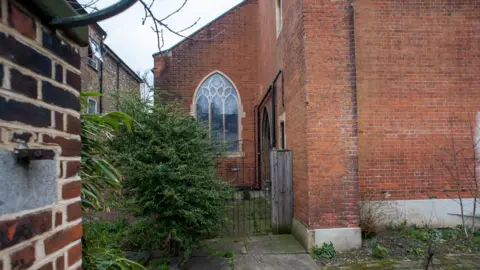
"I never set out to do anything illegal," Johnston says. "I was threatened with a jail sentence for rescuing vulnerable children who have been given up on by mainstream schools, caring for them, educating them at my own expense."
One mother, whose son and daughter both attended, says she chose to educate them there because she was unhappy with the alternatives offered by the state. Pupil referral units in the area are "a pipeline to failure", she says, leading to a life of crime.
Safeguarding alerts
The BBC has learned that local authorities across England and Wales have received 52 safeguarding alerts - concerns or suspicions of abuse or neglect - since January 2014 from unregistered schools.
The majority of reports concerned allegations of physical abuse, but alerts were also made about sexual abuse and grooming.
Alerts were received across England, with one in Wales. None were reported in Scotland and Northern Ireland.
Legal confusion
When Ofsted finds a suspected unregistered school, they can only issue a warning notice and seek to prosecute the individual running the school.
The Department for Education has to approve this, then evidence is passed to the Crown Prosecution Service, before the education secretary is given the final decision to proceed.
"It takes an inordinately long time and [lots of] resources," says Victor Shafiee, Ofsted's deputy director for unregistered schools. "It's not good enough."
Ofsted says it has limited investigative powers - that it is not allowed to take away any evidence, force entry to premises with locked doors or compel witnesses to be interviewed.
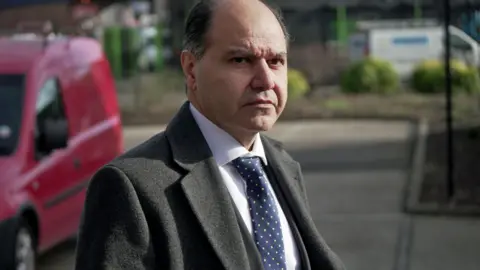
Despite investigating 359 suspected unregistered schools, it has yet to secure a single prosecution against a proprietor for running one.
Ofsted Chief Inspector Amanda Spielman says that her "hands are tied" and that the DfE "could and should" have approved cases to be put forward to the CPS.
The DfE says it works very closely with Ofsted and jointly agrees which cases are sent to the Crown Prosecution Service.
"The CPS then determine whether the evidential and public interest tests are met. If the Director of Public Prosecutions takes a decision to charge, the case then comes to the secretary of state for his consent. So far no cases have reached that stage.
"No child should be placed at risk and where a school is operating illegally action must be taken. We fund a joint team with Ofsted to target these organisations and as a result of that, 192 inspections have taken place and 50 warning notices have been issued.
"Thirty-eight unregistered schools have subsequently ceased to operate as schools and investigations are ongoing into the remainder."
Ofsted says there is anecdotal evidence of some places opening on new sites.
Shafiee says a change in the law is needed to shut these places down when inspectors visit them.
Ministers have regularly been warned about the issue.
Ed Balls was told about the problem of unregistered schools in Hackney by civil servants when he was the education secretary in 2009.
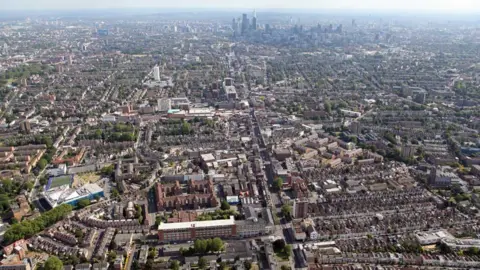 Alamy
AlamyThe civil servants said yeshivas were "operating illegally and without the most basic health, safety and child welfare checks".
Then in 2014, details of a dozen unregistered schools in London were sent to the department, then led by Michael Gove.
His successor, Nicky Morgan, was also alerted to the issue in a confidential advice note from 2015.
"Her Majesty's Chief Inspector is very concerned that the children and young people attending these unregistered schools are potentially at risk," it said.
"It is of utmost importance that urgent action is taken to ensure that they are kept safe and receive a suitable education."
In October 2015, it looked as if change was afoot.
In his party conference speech, Prime Minister David Cameron announced plans to introduce greater regulation of what he called supplementary schools.
"These children should be having their minds opened, their horizons broadened, not having their heads filled with poison and their hearts filled with hate," he said.
"If an institution is teaching children intensively, then whatever its religion, we will, like any other school, make it register so it can be inspected."
But Cameron's promise never materialised.
One of the reasons for the failure to act is understood to have been the objections raised by the Church of England. New proposals would have allowed Ofsted powers over any place supervising pupils for more than eight hours a week. The Archbishop of Canterbury, Justin Welby, believed the measures would impose a burden on even the smallest church Sunday schools.
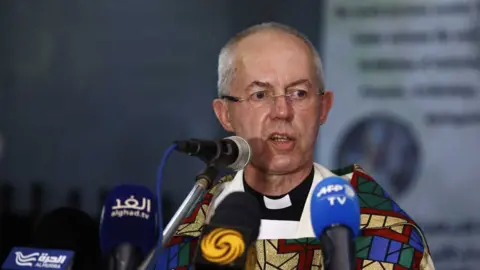 Getty Images
Getty ImagesBut the BBC understands there may be another reason for the DfE's reluctance to act.
We have seen legal guidance from 2014 known to have been cited by the DfE. The guidance suggests the DfE would lose in court if there was an attempt to close an unregistered Jewish yeshiva.
Daniel Greenberg QC, acting for a yeshiva, argued that somewhere providing only "specialised religious education" did not count as a school because it offers no secular teaching whatsoever.
The DfE makes a distinction between "unregistered schools" and "out-of-school settings". In the latter it includes "full-time settings that only teach a religious curriculum, and therefore do not qualify as schools".
Dame Louise Casey - who led a review of community cohesion in 2016 - says it's a "crazy policy" for the DfE to have.
"We do not want kids growing up here who are only taught one religious way of thinking, and that religion covers their whole way of life from what they can work as, who they can be, what kind of jobs they can do, how they treat women.
"Even if it's technically legal, it's wrong."

If you have any information or experience with unregistered schools that you are willing to share with the BBC you can get in touch with us at [email protected]
Your details and any information you send will be treated in confidence.
You can also contact us in the following ways:
- WhatsApp: +44 7555 173285
- Text an SMS or MMS to 61124 (UK)
- Please read our terms & conditions
